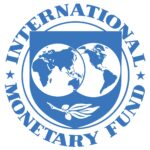
An economist, Dr Aminu Usman says he is in support of declaration by the International Monetary Fund (IMF) that the recently released Economic Recovery and Growth Plan (ERGP) will resuscitate the country’s economy.
Usman, a lecturer at the Department of Economics, Kaduna State University said this in an interview with the News Agency of Nigeria (NAN) on Monday in Abuja.
He said the ERGP would help move the country out of recession and probably put the country on the path of sustainable development.
The IMF had expressed confidence in efforts taken by the Federal Government in a document, which was recently obtained by NAN through the Executive Board at the conclusion of its 2017 consultation with Nigeria.
The IMF noted that the economy had been negatively impacted by low petroleum price and production.
The Fund commended the efforts already made by the government to reduce vulnerabilities and enhance resilience, including increasing fuel prices, raising the monetary policy rate, and allowing the exchange rate to depreciate.
Usman, however, said the ERGP was announced without its implementation plan.
“It is expected to impact on this year’s budget and we are already in April and yet the budget component of the ERGP is yet to be passed and signed into law.
“So the optimism expressed by IMF is not misplaced but their recommendations are irregular.
“The plan should be developmental and not revenue earning focus.
“What we need is to lower corporate taxes but not to increase it,’’ he said.
The don said the ERGP should promote local production and export but not to impose or increase excise duties.
He also said that the government should allow zero excise duty as a way of promoting competitiveness.
NAN reports that ERGP envisages that by 2020, Nigeria will make significant progress to achieve structural economic change with a more diversified and inclusive economy.
The plan would deliver on five key broad outcomes, namely: a stable macro-economic environment, agricultural transformation and food security as well as sufficiency in energy.
Other outcomes are improved transportation infrastructure and industrialisation with focus on Small and Medium Scale Enterprises. (NAN)

 Join Daily Trust WhatsApp Community For Quick Access To News and Happenings Around You.
Join Daily Trust WhatsApp Community For Quick Access To News and Happenings Around You.

